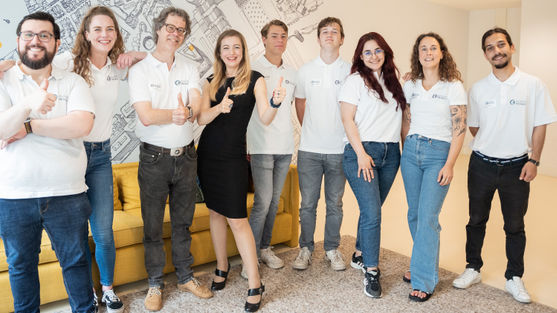Post | November 2022 | News | 2 min read
Celebrating National AND International Volunteer Days in December!

For those of us in the volunteer promotion community, this week is very special: Monday, 5 December is International Volunteer Day and Wednesday 7 December is National Volunteer Day in the Netherlands! These are days of recognition for all of the important work done by thousands of volunteers here and worldwide - and in every imaginable field. Volunteering isn't just an activity that makes a difference in the community and in the lives of others - this act of kindness can also help the one volunteering, whether it be by gaining new skills, a sense of purpose, or simply the satisfaction of having helped others. According to Time Bank, 84% of HR and recruiting professionals agree that volunteering is a great way to help people find work, with an astounding 80% of employers saying that they regard volunteering positively on a potential employee's CV. Whether it's helping to combat depression, learning to engage with new communities, or improving health and fitness, volunteering can also benefit one's physical and mental health and wellbeing.
We at Volunteer The Hague understand the important benefits of volunteering - especially for internationals just moving to a new country. No matter the stage in your moving process, volunteering can be a great asset to help you get settled. This is why Volunteer the Hague connects internationals with meaningful volunteer opportunities at local non-profit organizations, free of charge. The Hague is a place where all nationalities come together, forming a multicultural society. Our mission has always been to bridge the gap between internationals who may not know where to start on their volunteering journey in a new country, and nonprofits who are searching for internationals to help aid in their inspiring missions.
Together, we can empower people to change the world from the grassroots up, especially when enabled by partnerships between local internationals and local nonprofit organizations. To all of the fantastic volunteers in our community, we want to send a big THANK YOU and hope you continue your volunteer journeys in 2023!


